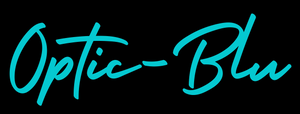Introduction to Blue Light and Its Impact on Eyesight
Introduction to Blue Light and Its Impact on Eyesight
The digital age has ushered in countless benefits, enabling seamless communication and vast information access. However, it also introduces challenges, particularly concerning our health. One significant issue is the exposure to blue light, a high-energy visible light, which digital devices emit in large amounts. This article dives into how blue light impacts our eyes and how blue light reading glasses can be a beneficial tool to mitigate these effects.
What Are Blue Light Reading Glasses?
The Science Behind Blue Light
Blue light is a part of the visible light spectrum that can penetrate deeper into the eye and cause discomfort and potential long-term harm. Scientific studies suggest that prolonged exposure to blue light could lead to digital eye strain and disrupt the natural sleep cycle.How Do Blue Light Glasses Work?
Blue light reading glasses are designed with lenses that either block or filter out blue light emitted by screens, thus reducing exposure. These glasses are tailored not only to protect the eyes but also to enhance focus and reduce glare while reading or using devices.
The Benefits of Using Blue Light Reading Glasses
Reduction in Eye Strain
Users often report a significant decrease in eye strain with regular use of blue light glasses. By filtering out blue light, these glasses help in maintaining healthy eye function and comfort during long periods of digital consumption.
Improved Sleep Patterns
Exposure to blue light, especially before bedtime, can interfere with melatonin production, a hormone that regulates sleep. Blue light glasses can help maintain natural sleep rhythms, making it easier for users to fall asleep.
Enhanced Visual Comfort During Reading
Blue light glasses improve visual comfort by reducing glare and increasing the contrast on screens, making it less strenuous to read digital texts.
Who Should Consider Blue Light Reading Glasses?
Frequent Users of Digital Devices
Anyone who spends several hours a day in front of a computer, tablet, or smartphone screen can benefit from blue light glasses.Individuals with Pre-existing Eye Conditions
People with conditions like dry eye syndrome or who are susceptible to eye fatigue could find relief through the protective features of blue light glasses.Elderly Readers
Aging eyes are more vulnerable to light sources, making the elderly a prime group to benefit from these specialized glasses.
Choosing the Right Blue Light Reading Glasses
Factors to Consider
Selecting the right pair involves understanding lens effectiveness, durability, and the type of blue light filtering technology used.
Lens Technology and Options
There are various lens technologies, from basic blue light blocking to more advanced options that offer UV protection and minimal color distortion.Frame Styles and Comfort
Comfort is crucial, as the glasses may be worn for extended periods. Frames should fit well and be stylistically pleasing, ensuring they can be worn regularly.
How to Integrate Blue Light Glasses into Your Daily Routine
When to Wear Blue Light Glasses
It's best to wear blue light glasses while using any digital device or in environments with harsh LED or fluorescent lighting.
Combining Glasses with Other Eye Protection Strategies
For optimal eye health, combine the use of blue light glasses with regular breaks using the 20-20-20 rule (every 20 minutes, look at something 20 feet away for 20 seconds).
Potential Downsides and Considerations
Limitations of Blue Light Glasses
While helpful, blue light glasses are not a cure-all solution and should be part of a broader approach to eye health.
When to Consult an Eye Care Professional
It’s important to consult with an eye care professional if you experience ongoing eye discomfort or visual disturbances despite using blue light glasses.
Conclusion
Recap of the Benefits
Blue light reading glasses offer numerous benefits, from reducing eye strain to helping maintain natural sleep cycles. They are an essential tool for anyone looking to protect their eyes in the digital age.
Encouragement to Try Blue Light Glasses
Considering the potential benefits, trying blue light reading glasses might be a wise choice for those looking to enhance their digital reading experience and overall eye health.
FAQs
-
Do blue light glasses really work? Yes, numerous users and some scientific studies affirm that blue light glasses can reduce eye strain and improve sleep by blocking or filtering harmful blue light.
-
Can wearing blue light glasses prevent eye diseases? While they can reduce discomfort and strain, there is no conclusive evidence that blue light glasses can prevent eye diseases related to blue light exposure.
-
Are there any side effects to wearing blue light glasses? Most users experience no adverse effects from wearing blue light glasses. However, individuals with specific prescriptions should consult an eye care provider to ensure compatibility.
-
How often should I wear my blue light glasses? It’s beneficial to wear blue light glasses whenever using digital devices or exposed to LED or fluorescent lighting to maximize protection.
-
Can children wear blue light glasses? Yes, children, particularly those who spend considerable time on digital devices, can benefit from wearing blue light glasses to reduce eye strain and support healthy sleep patterns.
